SUMMARY
This is AI generated summarization, which may have errors. For context, always refer to the full article.
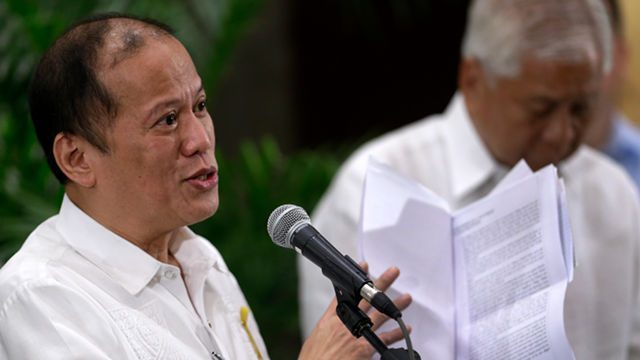
MANILA, Philippines – In the so-called David versus Goliath disputes in the South China Sea, China holds the sticks and carrots. From gunboat to money diplomacy, it seizes the upper hand over its smaller neighbors. Yet the Philippines is slinging its own stone: international law. How far will this shot go?
The Philippines made history by being the first country to legally challenge China’s expansive sea claims. A strategy that analysts refer to as “lawfare,” Manila resorted to arbitration as China flexes its military muscle in disputed areas. The argument of Filipino officials goes: international law is “the great equalizer” and “right is might.”
Yet China rejects the case and snubs a December 15 deadline to respond. Its refusal to participate sparks questions on whether Beijing will comply with a decision favorable to the Philippines. If not, will Manila get the “enduring solution” it is after?
“There’s not as much of a benefit as you might imagine. It seems very powerful. It’s a legal case. It’s not futile but it’s hard to imagine the perfect outcome for the Philippines happening – China saying, ‘Oh sorry, we’ll comply,’” said American international law professor Julian Ku of Hofstra University in New York.
Ku and foreign affairs experts tell Rappler that questions on the enforcement of the ruling, and the tribunal’s power to decide the case make the Philippines’ legal gambit uncertain. They say the Philippines must work harder on other channels to make the case effective, and to keep the Asian giant at bay.
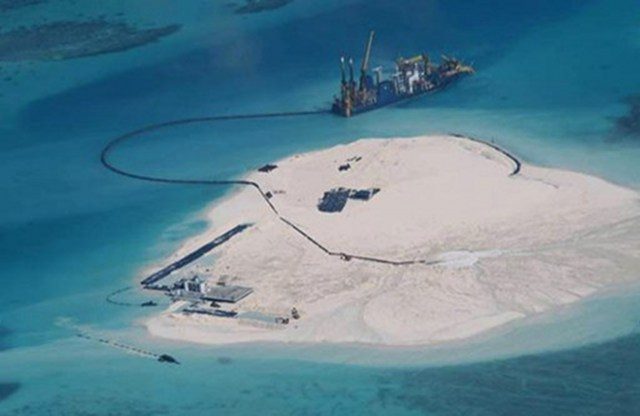
‘China oddly disrespectful’
The row over the South China Sea spans decades and successions of leaders. China, the Philippines, Vietnam, Malaysia, Brunei and Taiwan contest the strategic sea where around half of the world’s freight cargo passes, and the site of coveted fishing areas, and potential rich deposits of oil and gas.
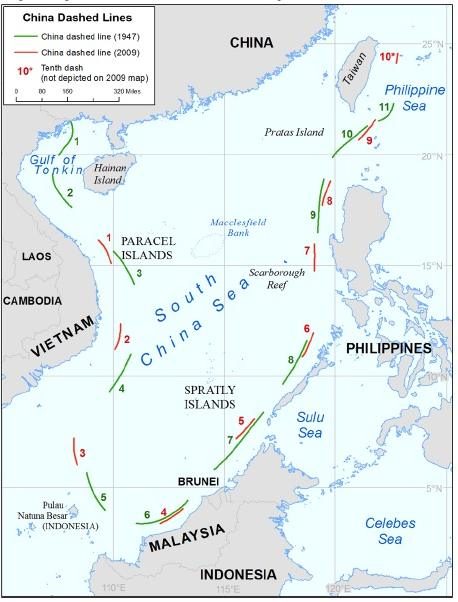
As China rises to superpower status and grows aggressive, the waters are a possible global flashpoint. A Pew Research Center survey released in July showed that most Asians are concerned that the territorial disputes could lead to military conflict, with Filipinos topping the list at 93%.
After protracted negotiations and military skirmishes, the Philippines’ legal case is a novel tack. In January 2013, the Aquino administration brought China to arbitration under the 1982 United Nations Convention on the Law of the Sea (UNCLOS). Manila and Beijing are parties to UNCLOS, known as the constitution for oceans and seas.
A lawyer with experience in international litigation and arbitration, Ku said the case was initially a game-changer.
“It’s the first time this process has been used for any topic in relation to the South China Sea. The reason why it’s also important is China has never been involved in any type of international litigation involving sensitive topics like this. It’s a big test for the law of the sea, and also for China,” Ku told Rappler in an interview in Long Island, New York.
Yet the professor said that arbitration works best when both parties agree to have the tribunal settle the dispute. China believes the tribunal has no jurisdiction or power to decide the case.
Ku said China’s stand is “oddly disrespectful.” After all, it opted into the treaty. “Even if the tribunal does not have jurisdiction, they at least have the power to decide whether or not they have the power. It’s a little circular but China agreed to at least that much. But by not participating even in that process, it’s disrespectful.”
Clark Alejandrino, former director of Ateneo de Manila University’s Chinese Studies Program, explained why Beijing is averse to having an international body rule on the dispute.
“China feels no need to seek a third party. It has the ability to assert sovereignty through their military and clearly, we don’t. It also sets a precedent. If they submit to arbitration here, they will have to do so in other territorial disputes and they don’t want that,” said Alejandrino, now a history doctoral student in Georgetown University in Washington DC.
The case also surprised China because President Benigno Aquino III took the “hard line” and challenged its “consistent strategy” to keep its sea claims ambiguous.
“It represents a very distinct break from the past,” Alejandrino said. “This is not what previous administrations did. There have been conflicts but each side would try to minimize the media attention, exchange a few diplomatic barbs, but it would die down. But this one is different, precisely because Aquino has not backed down.”
While his predecessors agreed to joint exploration, Aquino insists it is high time to settle the row. The President ordered the filing of the case after China seized Scarborough Shoal following a tense standoff in 2012. That same year, his government renamed the parts of the sea it claims as the “West Philippine Sea.”
“This problem has been put on the back burner for far too long and that’s why in the Philippines’ case, we want a resolution for this,” Aquino said.
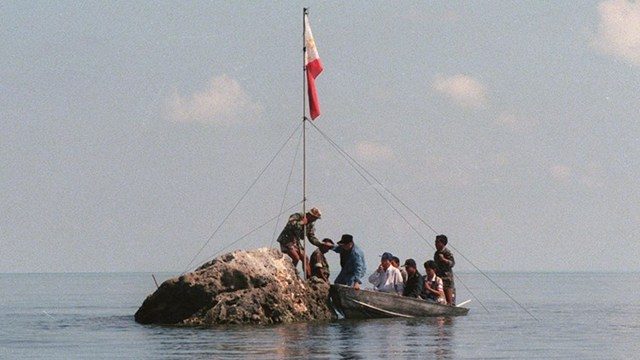
Rocks or islands? But who owns them?
The Philippines is banking on arbitration to resolve the dispute. To win, it has to convince the tribunal on two fronts: jurisdiction and merits. What are the odds?
Sean Mirski, Supreme Court Chair of the Harvard Law Review, summarized the Philippines’ claims as follows in an article in the journal The National Interest:
- That China’s 9-dash line is unlawful under UNCLOS
- That many maritime features claimed by China do not generate a 200-nautical mile exclusive economic zone (EEZ) as Beijing asserts
- That China repeatedly violated the Philippines’ rights under UNCLOS
In the second claim, the Philippines wants the tribunal to declare that the maritime features are merely rocks, not islands. The distinction has practical implications.
Unable to support human or economic life, rocks only generate a 12-mile territorial sea under UNCLOS. Above water at high tide, islands generate an EEZ where a state has the exclusive right to explore and exploit resources like fish, oil, and gas.
China argues that the Philippines cannot ask the tribunal to decide on the nature of the features without first determining who owns them. The catch is that territorial sovereignty is beyond the scope of the sea treaty.
Another Chinese argument on jurisdiction is that asking the court to recognize the maritime features as part of the Philippines’ EEZ is tantamount to what is called maritime boundary delimitation. When it ratified the treaty in 1996, China identified maritime delimitation as an exception to dispute settlement.
Ku said that sovereignty and maritime delimitation are Manila’s main obstacles.
“The weakness with the Philippines’ position is that everyone knows and the Philippine government itself sometimes calls this essentially a sovereignty or territorial dispute. At the heart of this is ultimately, does China or the Philippines have sovereign rights to these different features in the South China Sea? Those kinds of questions cannot be heard by the tribunal,” Ku said.
While jurisdiction is under question, the Philippines has a strong case on the merits of its focal claim: China’s 9-dash line. Philippine Supreme Court Senior Associate Justice Antonio Carpio brands the line “utterly without basis in international law.” This is the consensus of legal experts worldwide, which the US asserted in a recent study.
China’s absence does not mean the process is faulty or one-sided. UNCLOS requires the tribunal to study Beijing’s position, detailed in books, journals, and a position paper whose release it timed right before the deadline. Unlike in US cases, a party cannot win by default.
The tribunal is expected to decide in early 2016. Ku foresees 3 scenarios for the arbitral award or ruling: no jurisdiction, full jurisdiction, and a split decision.
“The worst case scenario is the Philippines will lose on jurisdiction. This shouldn’t affect the merits of their claims, though. For China, the worst case scenario is that it loses on the merits and would have to face the decision of whether to comply with the tribunal.”
| Calendar of Legal Case | |
| January 23, 2013 | Start of arbitration |
| February to July 2013 | Composition of tribunal |
| March 31, 2014 | Submission of PH memorial |
| December 15, 2014 | China’s counter-memorial |
| December 16, 2014 | Tribunal’s questions to PH |
| March 16, 2015 | PH answers to questions |
| July 7 to 18, 2015 | Oral hearings before tribunal |
| January 2016 | Anticipated issuance of ruling |
Source: CSIS lecture of Paul S. Reichler, Counsel for PH arbitration case
The ‘shame strategy’
China’s compliance is a major hurdle for the Philippines. Even if its topnotch international legal team succeeds, there is no mechanism to implement the decision. This early, Chinese scholars say Beijing will likely defy an adverse ruling.
“You admit that you don’t have the economic or military leverage over China, which is why you brought this case in the first place. That means if you get an award, you still have no leverage to get it enforced.”
– Professor Julian Ku, Hofstra University
Manila anticipates this outcome. Ernest Bower, senior adviser of the US think tank Center for Strategic and International Studies (CSIS), echoes the Philippine view that disregarding the ruling will make China lose in the court of global opinion.
“China lives in a community of nations, and it wants to be a regional power and a global leader, and a responsible country. To do that, you have to follow the rules that you, China, made with the rest of the world. If you don’t feel bound by those rules, then you have fundamentally broken that trust and destabilized your own neighborhood,” Bower told Rappler in his Washington DC office.
For Ku, the “international outlaw” argument is not foolproof. He said countries like Russia and even the US have not complied with some international rulings and “lived to tell the day.”
“What if you win everything? All you get is an award that China is going to ignore. You admit that you don’t have the economic or military leverage over China, which is why you brought this case in the first place. That’s fine but that means if you get an award, you still have no leverage over China to get it enforced,” he said.
Alejandrino pointed out that China’s stance enjoys popular support at home where schools ingrain into the Chinese at an early age that the islands are theirs. “It’s difficult for them to deviate because there’s a very strong nationalistic sentiment. If you look at the DepEd textbooks in the Philippines, most of them will not have Kalayaan Island.”
For “lawfare” to work, Harvard Law’s Mirski said that the Philippines needs to earn enough international support to translate a possible legal and moral victory into political pressure, and convince China that it cannot afford the backlash.
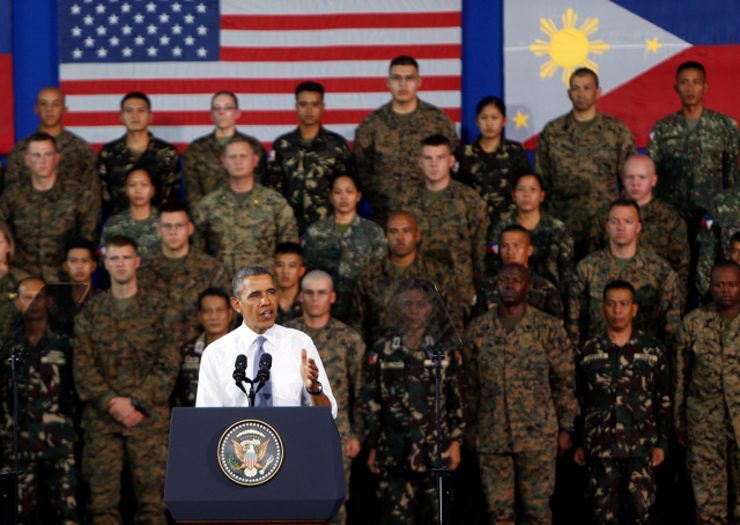
US, ASEAN and China’s ‘delusion’
In seeking global support for arbitration, Aquino turned to a trusted treaty ally: the United States. Bower said that US President Barack Obama articulates well that the US has an interest in a peaceful solution, and remains committed to its allies.
“Americans will be looking to try to increase the capacity of regional countries to know what’s happening in their territorial seas. The code word for this is ‘maritime domain awareness.’ We will be around not for the next 5 years, not for the next decade, but for the rest of the century on this issue.”
True enough, the US signed a 10-year military agreement with the Philippines, proposed a freeze to provocative acts in the sea, supported the crafting of a Code of Conduct on the South China Sea, and used the “bully” tag to condemn Chinese aggression. Yet as Justice Carpio noted, military deals did not lead to US aid when Beijing took the disputed Scarborough Shoal from Manila.
Obama’s much-touted pivot to Asia also came under question due to a regional perception that the US was distracted with the Middle East and Ukraine. Losing control of Congress in the November polls contributed to this perceived weakness. (READ: ‘President Hillary’ to follow through on Asia pivot – analyst)
Besides the US, Aquino went on a trip to Spain, Belgium, France and Germany in September where he earned statements of support from his European counterparts. Alejandrino said Europe is hesitant to do more.
“Germany can say the Philippines is doing the right thing but Germany is not going to send troops to help us assert sovereignty, right? And these countries have huge trade relations with China. There’s a lot on the line for them as well. These are just token statements but will they help us is another question,” he said.
Closer to home, the Philippines continues engaging with the Association of Southeast Asian Nations (ASEAN). In August, Foreign Secretary Albert del Rosario presented to ASEAN Manila’s Triple Action Plan where arbitration is the final step.
The Sumitro Chair for Southeast Asia Studies at CSIS, Bower said that ASEAN recently became “more forthright” on the row, and puts it on the agenda of meetings. He urged the regional bloc to be a stronger voice.
“ASEAN can only play a central role going forward for Asian cohesion if it’s strong itself. It’s got to improve its institutions. Things like the ASEAN Secretariat in Jakarta, ASEAN countries have to commit more resources to that,” Bower said.
In a surprise development, Vietnam joined the Philippines’ case by submitting its position to the Hague-based tribunal. The move contradicted China’s insistence on settling disputes one-on-one, where it can use its weight to its favor.
Bower said China does not recognize ASEAN centrality.
“China still wants Asia to be ordered around a Sino-centric model, where they will be the Middle Kingdom. China wants to make the rules. That’s not likely to work in my view so as soon as the Chinese can get through this period of sort of strategic delusion, I think Asia will be a lot safer and a lot more prosperous.”
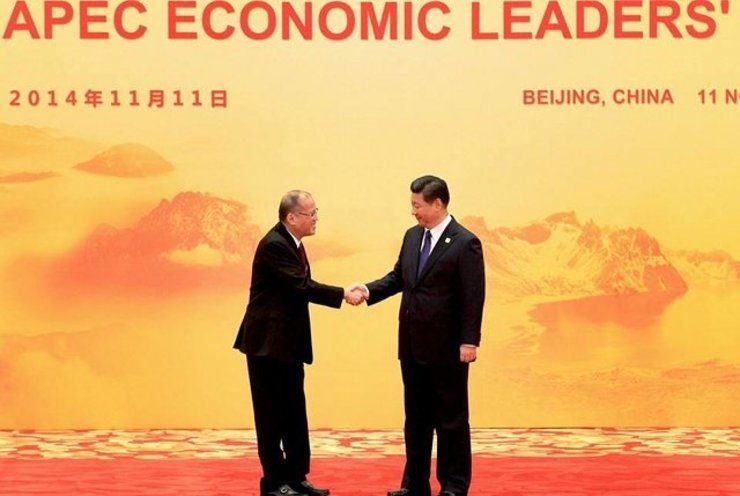
‘China respects military power’
With the limitations of the legal approach, experts point to other tracks to complement arbitration and to boost the Philippines’ clout.
One is high-level diplomacy, building on what Aquino called a “nice opening” – his informal talk with Chinese President Xi Jinping at the Asia-Pacific Economic Cooperation (APEC) summit in Beijing in November.
Reportedly done on China’s initiative, the encounter was the first direct contact between the two leaders, and a break from the fiery rhetoric their countries routinely exchange.
In APEC, Aquino said he wants to “listen to China” and concentrate on trade relations. Trade and tourism partly suffered when Beijing stepped up restrictions on Philippine banana imports at the height of the Scarborough tensions, and issued a travel advisory in September. China is the Philippines’ third top trading partner.
“There is still room for diplomacy,” former ABC News Beijing bureau chief Chito Sta Romana said in a forum. “I’m not saying drop your arbitration case. It is now too late. But you can combine [that with] diplomatic direct talk.”
Observers are unanimous in identifying another route that Manila must work harder on: upgrading one of Asia’s weakest militaries.
Aquino improved defense spending and launched a military modernization program. Southeast Asia security analyst Dr Zachary Abuza credits the President for the effort but said decades of neglect mean this “hardly scratches the surface.”
Citing data from the Stockholm International Peace Research Institute, Abuza wrote in the Indo-Pacific Review that Philippine military spending in 2013 was only 1.2% of the gross domestic product (GDP), in contrast to China’s 2%. Manila only spends $35 per capita on defense, below the regional average of $52.9.
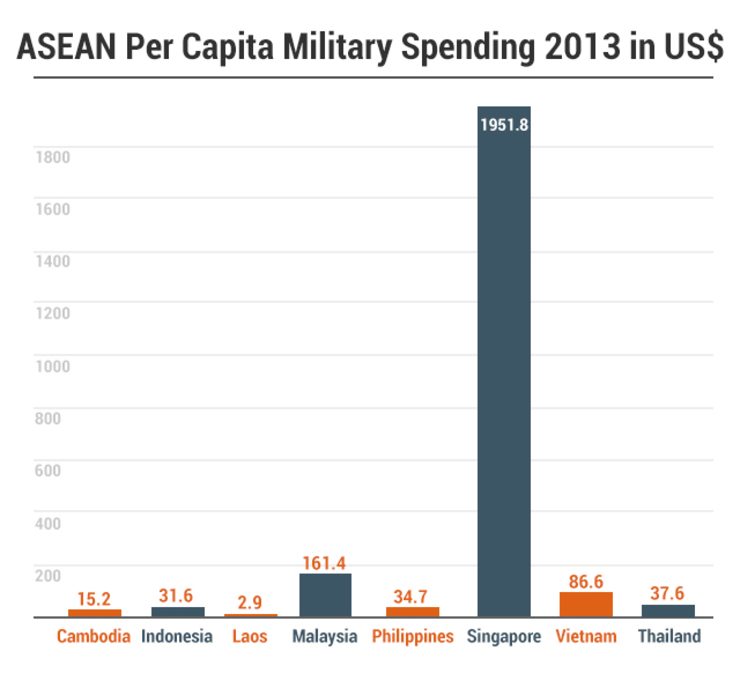
Abuza said the Philippines must invest more in its military instead of just relying on other countries’ “hand-me-downs.”
“Recent modernization efforts look pretty anemic. The Philippines has only the barest ability to patrol its maritime domain,” he said.
Georgetown’s Alejandrino stressed that this is a strategy Beijing will not dismiss. “What I think the other Southeast Asian states know that we don’t is that the best way to deal with China is to build up your own military capabilities. And that has to start with the domestic [aspect], in dealing with corruption.”
Whatever the outcome of arbitration will be, its impact will depend on how well the Philippines navigates these different avenues.
“It’s dangerous to let the legal strategy overshadow your overall strategy,” Ku said. “I just hope that the Philippine government understands that there’s a limit to what they can get even if they pass all the legal hurdles and they win. I’m sure they do.”
Beyond David versus Goliath, the analogy for the dispute is the chess game. In this match, every move counts. – Rappler.com
Rappler multimedia reporter Ayee Macaraig is a 2014 fellow of the Dag Hammarskjöld Fund for Journalists. She visited New York and Washington DC to cover the UN General Assembly, foreign policy, diplomacy, and world events.
Add a comment
How does this make you feel?
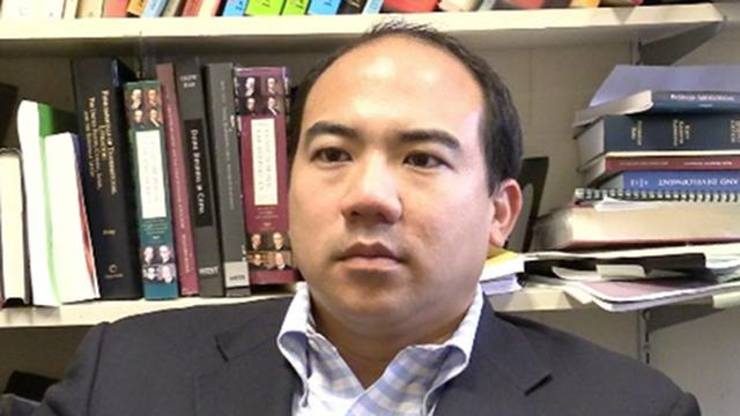
There are no comments yet. Add your comment to start the conversation.